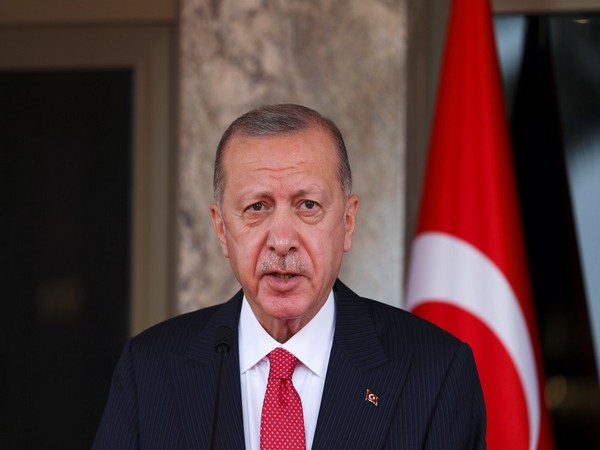
Nicosia: Türkiye's President Recep Tayyip Erdogan, having been re-elected on May 28 for another five-year term, last Saturday unveiled his new cabinet line-up, which caused a lot of surprises, as he replaced 16 out of 18 of his previous ministers, including Interior Minister Suleyman Soylu, Foreign Minister Mevlut Cavusoglu and Defence Minister Hulusi Akar.
The three ministers were generally seen as people who are very close to Erdogan and who would continue in their respective posts because they implemented his policies so faithfully that they were even "more royalist than the king." Hardliner Suleyman Soylu was replaced in the Interior Ministry by Ali Yerlikaya, who served as governor of Istanbul, and whose name was associated with an increase in police clampdown on women's rights activists and human rights activists.
More surprising was the replacement of Foreign Minister Mevlut Cavusoglu, by Hakan Fidan the former Head of the National Intelligence Organization, a figure who reportedly shifted Türkiye's security cooperation with the United States and Israel to that with Qasem Soleimani, the Commander of the Iranian Quds Force, who was later assassinated by a US drone attack.
Erdogan's spokesman, long-term confidant and chief foreign policy advisor Ibrahim Kalin will replace Fidan as head of the National Intelligence Organisation.
Yasar Guler, former Chief of the General Staff will take up the post of Defence Minister replacing headliner Hulusi Akar, who was also a former Chief of the General Staff.
The appointment of former Wall Street Banker Mehmet Simsek as Finance Minister may signal that Erdogan has decided to return to a more rational financial policy and will no longer insist on his unorthodox view on low-interest rates that have depleted the foreign exchange reserves from the coffers of the Central Bank.
Speaking at the handover ceremony, Simsek stressed: "Türkiye does not have any choice left other than returning to rational policy-making. Transparency, predictability, consistency and compatibility with international norms will be the core principles of future economic policies."
This implies that before accepting the ministerial portfolio, Simsek who in 2009-2018 served as Türkiye's Finance and Deputy Prime Minister, had discussed with the Turkish President the need to change the country's disastrous financial policy. Undoubtedly, Simsek's appointment will offer a boost to the market.
The only woman in the cabinet is 41-year-old Belgian-born Mahinur Ozdemir-Goktas who has been appointed as the family and social services minister.
It is worth noting that in the new government, there are less career politicians and more bureaucrats which indicates that Erdogan wants technocrats to correct mistaken policies of the past and that he wants a more pragmatic approach in governing the country.
Now let's see which of Turkish policies are expected to change in the next five years of Erdogan's rule, taking into account the fact that, although Türkiye is an important NATO country, Erdogan does not hesitate to take an independent line from the West if he thinks that it serves his interests.
In an election speech last month Erdogan declared: "Türkiye will give a message to the West with this election. This country does not look at what the West says, neither when fighting terrorism nor in determining its economic policies."
Ankara has ratified Finland's bid to become a member of NATO, but continues to object to Sweden's bid to join the Alliance, because of Sweden's alleged support for Kurdish "terrorists". Although the Swedish government has made some moves to placate Türkiye, Erdogan says that these are not enough.
Some political analysts claim that Erdogan will continue to block Sweden's bid as a bargaining chip with the US Administration and wants to exchange Türkiye's ratification of the NATO bid with US permission to purchase F-16 fighter jets.
Despite several moves made by Erdogan in the recent past to improve relations with the West, particularly in view of the economic crisis facing Türkiye, the President has adamantly refused to implement Western sanctions against Russia and is expected to continue his friendly relations with Putin. After all, Russia is one of Türkiye's main trading partners.
In January-December 2022 period, the top country for imports to Türkiye was Russia with USD 58.85 billion, while a Russian company is building Türkiye's first nuclear power station.
Emre Peker, of the Eurasia Group consultancy, expresses the belief that "Ankara will maintain robust diplomatic and economic ties with Moscow while remaining a critical but difficult NATO ally."
As the question of the return of about 3.6 million Syrian refugees in Türkiye back to Syria has been one of the main issues of the election campaign, Erdogan will make the normalisation of Türkiye's relations with the Bashar al Assad regime depended on reaching an agreement on this thorny issue.
Erdogan's rival Kemal Kilicdaroglu, in an apparent move to win the nationalist vote at the runoff election, vowed to expel all refugees from the country, while Erdogan announced plans to build a million houses in northern Syria for the voluntary return of refugees in order to achieve that he will have to secure a promise by the Damascus regime that these refugees will not be persecuted.
It is expected that the Turkish President will continue to pursue actively the restoration of relations with several Arab countries, with which he had been at loggerheads in the past.
Egypt and Türkiye, two countries which were at each other's throat since the overthrow of Mohammed Morsi in 2013 and support opposing sides in the Libyan civil war, have agreed to restore full diplomatic relations, following a phone call from Egyptian President Abdel el-Sisi to congratulate Erdogan on his election victory.
The UAE which maintains cordial relations with Türkiye, just three days after Erdogan won the elections ratified a five-year $40 billion trade with Türkiye.
It is generally believed that apart from toning down his aggressive rhetoric, Erdogan will start his new term as President by following the same foreign policy and his transactional relations with most countries in the world.